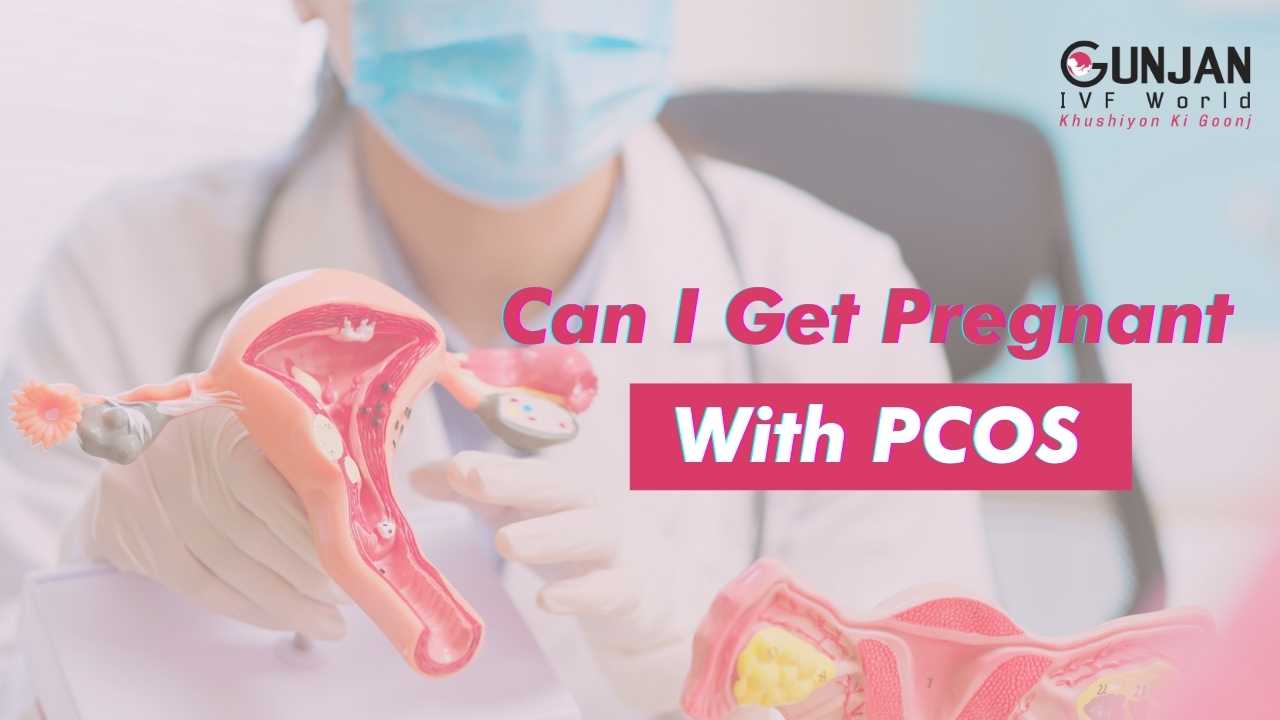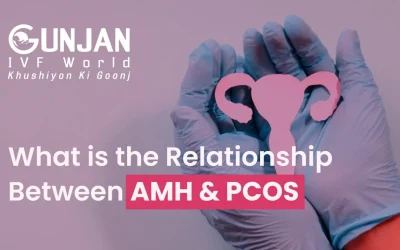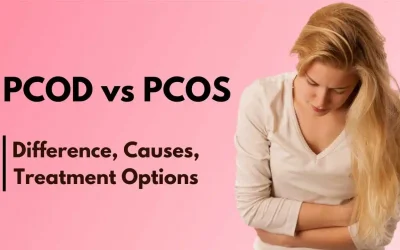Overview
If you have been diagnosed with PCOS, you may be wondering if you are still able to get pregnant. The good news is that most women with PCOS can still conceive a child, but there are some things that you need to keep in mind.
In this blog post, we will discuss the likelihood of getting pregnant with PCOS and what you can do to increase your chances. We will also cover some common treatment options for PCOS pregnancies. Stay tuned!

What is the likelihood of getting pregnant with PCOS?
The majority of women with PCOS will be able to get pregnant eventually. In fact, studies have shown that 80% of women with PCOS will ovulate within a year of treatment. However, it may take longer for some women with PCOS to conceive than others.
There are a few factors that can affect your ability to get pregnant with PCOS, such as:
1. The severity of PCOS symptoms & Pregnancy
There is a correlation between the severity of PCOS symptoms and difficulty conceiving. Women with milder symptoms may have an easier time getting pregnant, while women with more severe symptoms may have a harder time.
2. Age & Pregnancy
Your age can also affect your ability to conceive with PCOS. If you are younger, you may have a better chance of conceiving than if you are older. This is because fertility declines with age.
3. Obesity & Pregnancy
If you are obese, you may have a harder time getting pregnant with PCOS. This is because obesity can worsen PCOS symptoms and can also cause insulin resistance. Insulin resistance can make it harder for your body to ovulate.
4. Insulin levels & Pregnancy
Having high insulin levels can make it harder to get pregnant with PCOS. This is because insulin resistance can cause your body to ovulate less frequently.
In short, If you have milder symptoms of PCOS, you may have an easier time getting pregnant than someone with more severe symptoms. Additionally, if you are younger and have normal insulin levels, you may also have an easier time conceiving.
On the other hand, if you are older and/or obese, you may have a more difficult time getting pregnant. PCOS can also cause problems with fertility, so it is important to see a fertility specialist if you are having difficulty conceiving.
20+ Years Of Experience as Fertility Specialists
20 Years Of Experience as a Fertility Specialists
National Fertility Awards 2023
Call Us
+917042874533
Best age to get pregnant with PCOS
There is no definitive answer as to what the best age to get pregnant with PCOS is. However, it is generally recommended that women with PCOS try to conceive before the age of 35.
This is because fertility declines with age, and women with PCOS may have a harder time conceiving as they get older. If you are over the age of 35 and have PCOS, you may want to see a fertility specialist.
Book An Appointment
Error: Contact form not found.
[mo_verify_phone]
Follow Us On
Our ratings
What can you do to increase your chances of getting pregnant with PCOS?
If you are pregnant with PCOS, there are a few things that you can do to increase your chances of a healthy pregnancy. First, you should see a fertility specialist. This is because PCOS can cause problems with fertility. A fertility specialist can monitor your pregnancy and help you make sure that everything is progressing normally.
There are a few things that you can do to increase your chances of getting pregnant with PCOS:
- Lose weight : eat healthy & exercise regularly
- Take fertility drugs
- Undergo IUI/ IVF treatment
- Have surgery to remove ovarian cysts
- Take Prenatal Vitamins
You should exercise and eat a healthy diet. Losing weight is one of the most effective things that you can do to increase your chances of getting pregnant with PCOS. If you are overweight, losing just 5-10% of your body weight can improve your insulin levels and increase your chances of ovulating.
Exercise can help to improve insulin sensitivity and can also help to reduce stress levels. Eating a healthy diet will also help to improve your insulin sensitivity and can help to keep your weight in check.
Fertility drugs can also be helpful in increasing your chances of getting pregnant with PCOS. These drugs can stimulate ovulation and help you to conceive.
IVF treatment may be necessary if you are unable to get pregnant with other methods. IVF can be successful in women with PCOS, but it is often more expensive and invasive than other methods.
Surgery to remove ovarian cysts can also be helpful in increasing your chances of getting pregnant with PCOS. This surgery can help to improve your hormonal balance and increase your chances of ovulating.
You should take a prenatal vitamin. This is important for all pregnancies, but it is especially important if you have PCOS. Prenatal vitamins can help to reduce the risk of birth defects.
Conclusion
If you have PCOS and are pregnant, it is important to see your doctor regularly. PCOS can make it harder to get pregnant, but most women with PCOS will be able to conceive eventually.
Also, pregnant women with PCOS are at an increased risk for certain complications, such as gestational diabetes and preeclampsia. Both of these conditions can be dangerous for both the mother and the baby. Your doctor will be able to monitor you closely and provide you with the care that you need to ensure a healthy pregnancy.
If you are struggling to cope with the symptoms of PCOS, then make an appointment with a PCOS doctor today. We have the best PCOS doctors in Delhi, India who can help you reverse your condition.
Share this with
Related Blogs
What is the Relationship Between AMH and PCOS?
Polycystic ovarian syndrome (PCOS) is a hormonal disorder that affects women of reproductive age. It is characterized by menstrual irregularities, cysts on the ovaries, and high levels of testosterone.
What is the Difference between PCOD vs. PCOS? (In Details)
Are PCOD and PCOS relative terms? Lots of women are confused about the difference between the two, often using the words interchangeably, particularly when attempting to comprehend the relationship between PCOS and PCOD, which is a common occurrence.
Book An Appointment
Follow Us On
About Author









